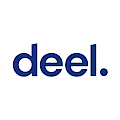It’s easy to dismiss the bravado of a chief executive officer who predicts that his company can become “the Apple of HR.” But executive optimism aside, the strong topline growth of Deel, a startup which sells human resources software to companies, certainly bears watching.
Alex Bouaziz, a co-founder and CEO of Deel, recently told Forbes that the company’s annual recurring revenue has jumped from $57 million a year ago to $295 million currently, adding that it turned a profit on an EBITDA basis in September. He also announced that the company’s valuation is now $12 billion as of May 2022.
San Francisco-based Deel is aiming to double its annual revenue in 2023, and reach $1 billion within two to four years, Bouaziz told Forbes. As part of that effort, Deel announced last week that it has created a single platform for corporate clients to hire, manage, and pay teams of workers across the world.
In May, Deel raised $50 million in Series D financing – its latest funding round to date. The latest financing involved Emerson Collective, the investment and philanthropic organization of Laurene Powell Jobs, the widow of Apple founder Steve Jobs.
“If we can get external investors to validate the valuation, it helps us with a lot of things,” Bouaziz told Forbes. “Having a good equity valuation helps us get more and more acquisitions done.” In November, Deel announced that it was buying Australian payroll company PayGroup for $83 million.
But Deel is just one of several leading privately-held players in the emerging industry of enterprise software to help companies with a myriad of human resources functions. Two other San Francisco-based software startups, Rippling and Gusto, are also providing their own suite of human resources offerings to companies.
Like Deel, Rippling, which was founded in 2016, has expanded its offerings. Once focused simply on the process of onboarding employees, the company now manages all aspects of employee data, from payroll and benefits, to the apps employees use, to a device management platform that enables Rippling’s customers to retrieve, wipe clean and store employee computers when staffers part ways with a company, according to TechCrunch.
Last year, the company was valued at $11.25 billion following a $250 million Series D funding round last May. Among Rippling’s investors are Bedrock Capital, Coatue Management, and Founders Fund.
Gusto has a similar mission to Deel and Rippling, except that its focus is primarily on small businesses. The company was valued at $9.4 billion last year following a Series E funding round totaling $364 million. Since its founding in 2011, the company has attracted investments from more than two dozen venture capitalists including Fidelity, Franklin Templeton, T. Rowe Price, and Salesforce Ventures.
QuickNode Announces $60M Series B Fundraise
Meanwhile, investment in the blockchain continues despite a spate of bad news for the overall cryptocurrency market. QuickNode, a company that serves as a platform for the development of blockchain applications, announced last week that it has closed a $60 million Series B funding round led by investor 10T Holdings with participation from Tiger Global, 776 and QED, among others. According to crypto news website Coindesk, the capital will be used toward the company’s global expansion. The latest financing gives the company a valuation of $800 million as of January 2023.





